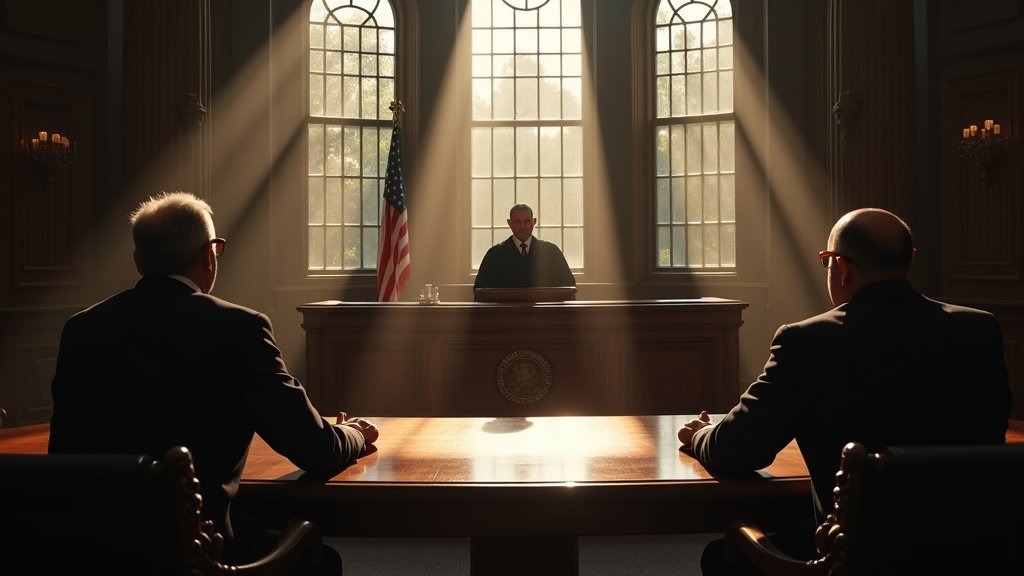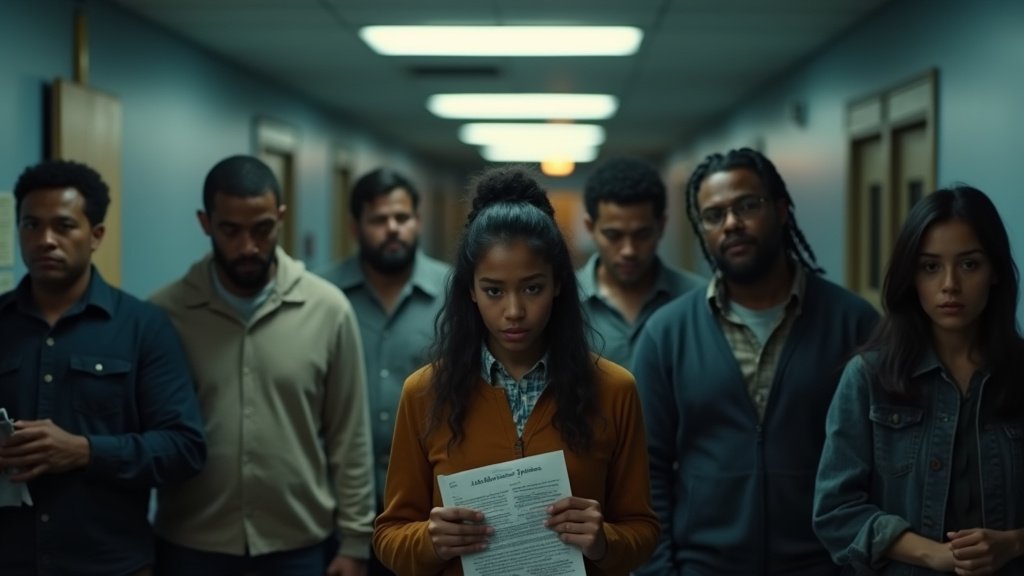The late summer and fall of 2025 saw a fierce legal battle unfold over President Donald Trump’s controversial attempt to deploy National Guard troops to Portland, Oregon. What began as a presidential directive to bolster federal presence amid ongoing protests quickly devolved into a complex series of court challenges, highlighting profound questions about executive authority, state sovereignty, and the role of the military in domestic law enforcement.
Background: Protests and Presidential Declarations
The deployment was ostensibly aimed at protecting federal property and personnel, particularly at the U.S. Immigration and Customs Enforcement (ICE) facility in Portland. President Trump characterized the city as a “war-ravaged” zone plagued by “Antifa and other domestic terrorists,” asserting that regular federal forces were insufficient to maintain order. These pronouncements, however, were met with strong objections from Oregon state and Portland city leaders, who argued that the situation did not warrant such a drastic federal intervention and that local law enforcement was capable of managing the protests. Governor Tina Kotek and Mayor Keith Wilson (or equivalent officials) repeatedly stated that the number of necessary troops was zero and that Trump’s claims of anarchy were exaggerated or false.
The Legal Offensive: Oregon and Portland Strike Back
In response to Trump’s September 28, 2025, directive to federalize and deploy 200 Oregon National Guard members without the governor’s consent, the state of Oregon and the city of Portland swiftly filed a joint lawsuit. Their complaint argued that the President had overstepped his constitutional and statutory authority, trampling on state sovereignty and disregarding established limits on federalizing the Guard. The core of their legal argument centered on 10 U.S.C. § 12406, a federal law authorizing presidential call-ups of state National Guard units, which plaintiffs contended required conditions such as “invasion, rebellion,” or a failure of regular forces to enforce federal law – none of which, they argued, applied in Portland.
U.S. District Court Judge Karin Immergut, a Trump appointee, became the pivotal figure in the initial stages of the legal fight. On October 4, 2025, Immergut issued a temporary restraining order (TRO) blocking the federalization and deployment of the Oregon National Guard. She found the President’s determination that federal law enforcement could not execute federal law in Portland to be “simply untethered to the facts” and noted a lack of evidence for a “rebellion” or “danger of rebellion”. Judge Immergut emphasized that the protests, while sometimes involving confrontations, were not of the scale or nature to justify the federal action, especially considering the role of local law enforcement.
Circumvention and a Second Blockade
Undeterred by Immergut’s initial order, the Trump administration signaled an attempt to circumvent it by planning to deploy National Guard troops from other states, specifically California and Texas, to Oregon. This move prompted Judge Immergut to issue a second, broader TRO on October 5, 2025. This order prohibited any federalized National Guard members, regardless of their home state, from deploying into Oregon.
The Justice Department subsequently appealed only the first TRO – the one blocking the federalization of the Oregon National Guard – to the U.S. Court of Appeals for the Ninth Circuit. The second TRO, which barred all federalized National Guard deployments into Oregon, was not appealed by the DOJ at that stage and therefore remained in effect.
The Ninth Circuit Ruling and Lingering Uncertainty
On October 20, 2025, a divided three-judge panel of the Ninth Circuit Court of Appeals delivered a significant ruling. In a 2-1 decision, the majority (Judges Ryan Nelson and Bridget Bade, both Trump appointees) found that the Trump administration was likely to prevail on appeal and lawfully invoked Title 10, a law that allows the president to federalize the National Guard. The panel agreed to freeze the district court’s first TRO, effectively clearing the path for the federalization and deployment of the Oregon National Guard. The majority opinion suggested that both of Judge Immergut’s TROs “rise or fall together” due to their shared legal reasoning.
However, Judge Susan Graber, in a strong dissent, disagreed, arguing that the Trump administration had not challenged the second TRO and that it therefore remained in effect, continuing to bar any National Guard deployment into Oregon. This dissenting opinion underscored the ongoing legal complexity and the potential for continued blockade.
Minutes after the panel’s ruling, a motion was filed requesting that the full Ninth Circuit Court of Appeals reconsider the case en banc, meaning a larger panel of judges would review the decision. This action introduced another layer of potential delay and uncertainty into the proceedings.
The Road Ahead: A Constitutional Chess Match
Despite the Ninth Circuit panel’s decision, National Guard troops were not immediately deployed to Portland. The existence of Judge Immergut’s second TRO meant that a deployment ban was still technically in place. The Justice Department quickly filed a motion asking Immergut to dissolve her second TRO, citing the Ninth Circuit’s ruling and the urgency of the matter. A hearing was scheduled for Friday, October 23, 2025, to consider this motion and the arguments from all parties.
This ongoing legal saga in Oregon was part of a broader trend of President Trump seeking to deploy federal forces or federalized National Guard units to cities experiencing protests. Similar legal challenges were occurring in Chicago and Los Angeles, raising significant constitutional questions about the separation of powers and the limits of presidential authority in domestic affairs. The legal battles behind Trump’s blocked National Guard deployment to Portland underscore a critical debate about the balance of power between federal and state governments and the appropriate use of military force within the United States, making this news a significant development in American legal news.




